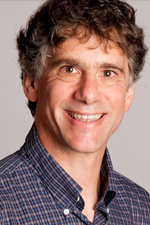Biography

Milo David Koretsky was born in 1962 in Berkeley, California, where he was also raised. The son of a civil engineer, Koretsky excelled in school and was interested in a broad range of subjects growing up, including literature, philosophy, and music.
Koretsky began attending college in 1979, when he was seventeen years old. He enrolled at the University of California-San Diego in the school's Reveille College, a subset of the university that focused on creating well-rounded scholars through a highly structured set of courses from many different academic disciplines. Koretsky originally majored in English literature but switched to chemical engineering during his sophomore year. As an undergraduate, he also worked as a teaching assistant in the Physics department, his first formal experience in instruction.
Koretsky graduated from UCSD in 1984 with a bachelor of science degree in chemical engineering and stayed at the university for another year as a graduate student, completing his master's degree in chemical engineering in 1985. From there, he decided to pursue his Ph.D. and returned to his hometown to study at the University of California-Berkeley. He began working as a graduate teaching assistant in the Department of Chemical Engineering as soon as he got there, and in the fall of 1987, he won the Dow Chemical Excellence in Teaching Award. By then, Koretsky recognized that he enjoyed teaching, and the following year he became an acting instructor for the Department of Chemical Engineering, continuing on in this capacity until 1991. In December of that year, he completed his Berkeley Ph.D., having conducted research on atom concentrations in plasmas used for etch processes.
In 1992, Koretsky joined the Oregon State University faculty as an assistant professor in the Department of Chemical Engineering. During his first year at OSU, Koretsky became the Chemical Engineering advisor for OSU's Multiple Engineering Co-op (MECOP) internship program, a position that he holds to this day. Around this time, Koretsky also began researching methods to prevent the decay of Oregon's coastal iron bridges. He likewise developed a program of research on thin-film deposition, scholarship that was meant to address needs expressed by Oregon's growing computer chip industry.
In 1999, Koretsky was named an Intel Faculty Fellow, an award that he would receive five more times over the next nine years. These fellowships helped to support Koretsky's growing scholarly interest in engineering education and curriculum development. Components of this work culminated with his publication, in 2004, of an important and widely adopted textbook, Engineering and Chemical Thermodynamics, which uses conceptual models to help students better understand thermodynamic concepts. During this period, Koretsky also began developing virtual learning modules that continue to provide OSU's student engineers with practical experience collecting data and making decisions in environments that approximate those encountered by professional engineers.
Koretsky has been recognized within the profession as a leader in engineering education. He won the Outstanding Teacher Award from the Pacific Northwest Section of the American Society for Engineering Education in 2009, and became the director of the American Institute of Chemical Engineers Education Division in 2010. He is also a founding member of the Center for Research on Lifelong STEM Learning. In addition, OSU has honored Koretsky with the L.L. Stewart Faculty Scholar Award (2006), the Elizabeth P. Ritchie Distinguished Professor Award (2011) and the College of Engineering Alumni Professor Award (2014).
Koretsky's current projects continue to focus on engineering education, including further development of virtual laboratories, study of community and group learning, and efforts to re-think standard instructional practices in the STEM disciplines.

